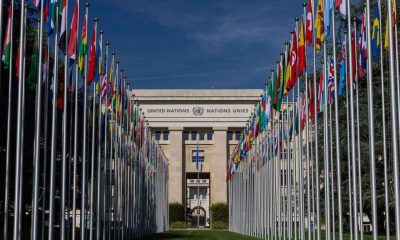Kuwait, in its steadfast commitment to elevate its citizens in the realm of government employment, has unveiled a groundbreaking draft law aimed at reshaping the employment landscape. Spearheaded by Kuwait National Assembly Speaker Ahmad Al-Saadoun, this legislation is poised to curtail the appointment of expatriates to government positions. Here are the key details of this transformative law.
Article 2: A Defining Directive
At the heart of this draft law lies Article 2, a pillar of resolute intent: “Public jobs are restricted only to nationals.” This article serves as the linchpin for Kuwait’s paradigm shift in government employment. The decree is clear: government positions are to be reserved exclusively for Kuwaiti nationals, except in cases where qualified Kuwaiti candidates are not available for a specific role.
Beyond the fundamental principle of prioritizing citizens, the law introduces rigorous checks and balances on expatriate salaries and benefits. Compensation packages for non-Kuwaiti employees must align with those provided to their Kuwaiti counterparts in equivalent roles, ensuring parity in remuneration.
Streamlined Recruitment and Enhanced Transparency
One notable provision of the bill is the absolute prohibition of hiring non-Kuwaiti personnel through recruitment agencies. This pivotal measure aims to simplify the recruitment process, enhance transparency, and underscore Kuwait’s commitment to prioritizing its citizens in government positions.
To address concerns surrounding underrepresentation among national job seekers, the draft law mandates that government entities advertise job openings on their official websites. These opportunities will also be featured on the Civil Service Commission website, ensuring wide visibility. Additionally, two prominent Arabic-language newspapers will publish these openings. Expatriate candidates can only be considered for these roles if no qualified Kuwaiti applicants emerge, underscoring the law’s commitment to citizens.
Employment Contracts, Renewals, and Applicability
The proposed legislation introduces a significant change in employment contracts for expatriate workers, stipulating a fixed one-year duration. Contract renewals will hinge on a meticulous re-evaluation of the role’s suitability for Kuwaiti citizens, placing Kuwait’s workforce at the forefront of government employment. These contracts will also exclude any additional allowances for expatriate employees.
It is essential to note that this law extends its reach to existing expatriate employees in Kuwait. Upon the expiration of their current work agreements, these workers will fall under the purview of the new legislation, aligning Kuwait’s employment landscape with its evolving priorities.
National Security and Employment Prospects
In the explanatory statement accompanying the draft law, Speaker Al-Saadoun underscored the paramount importance of national security and employment prospects for Kuwaiti citizens. He emphasized that while multiple draft laws have advocated for the prioritization of nationals in government roles, the continued appointment of expatriates, especially in sensitive positions, poses threats to national security and exacerbates unemployment among Kuwaiti citizens.
ALSO READ: The Middle East is the Leader of Sustainable Tourism: Here’s Why
This draft legislation marks a momentous leap for Kuwait, reaffirming its unwavering commitment to placing its citizens at the forefront of governmental roles. It is a testament to Kuwait’s dedication to the prosperity and security of its nation and its people.






















